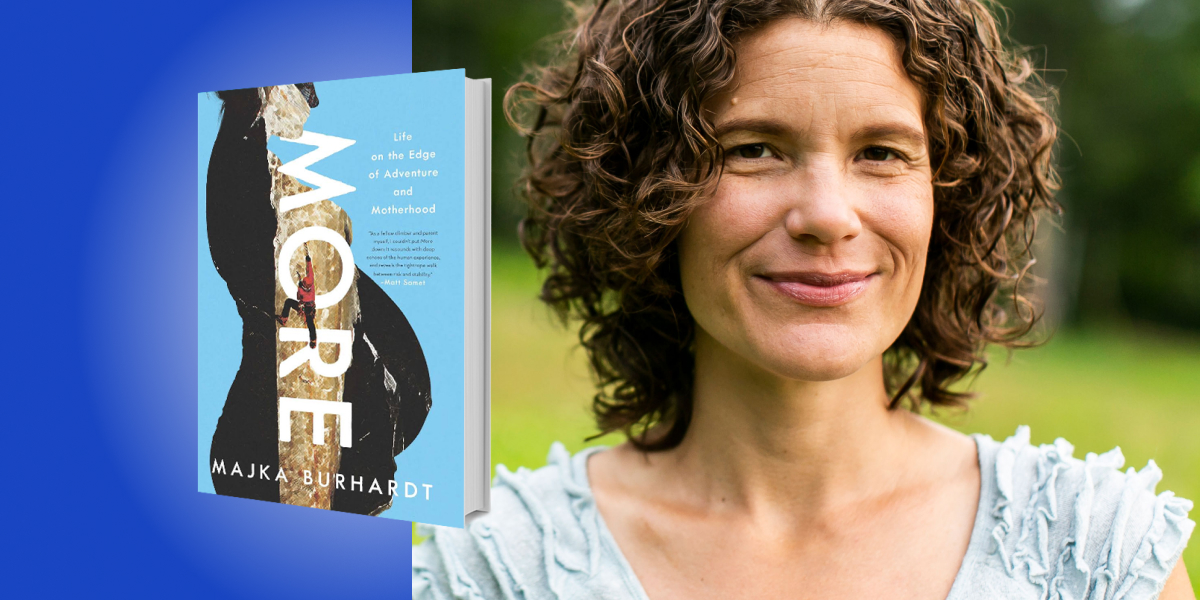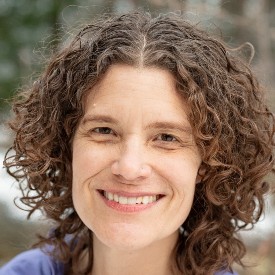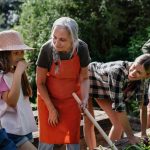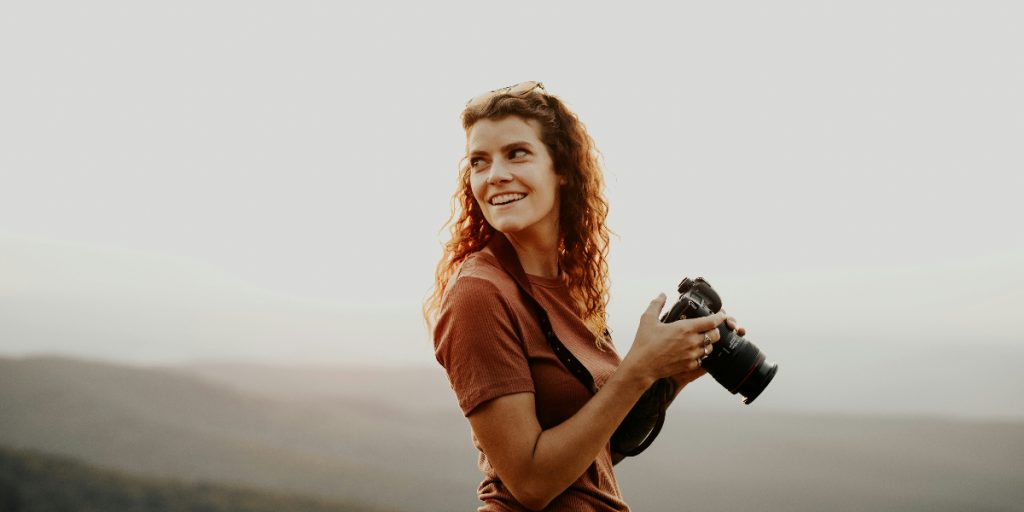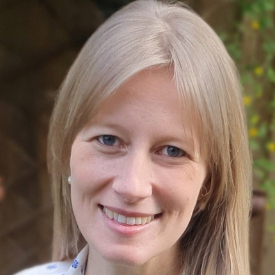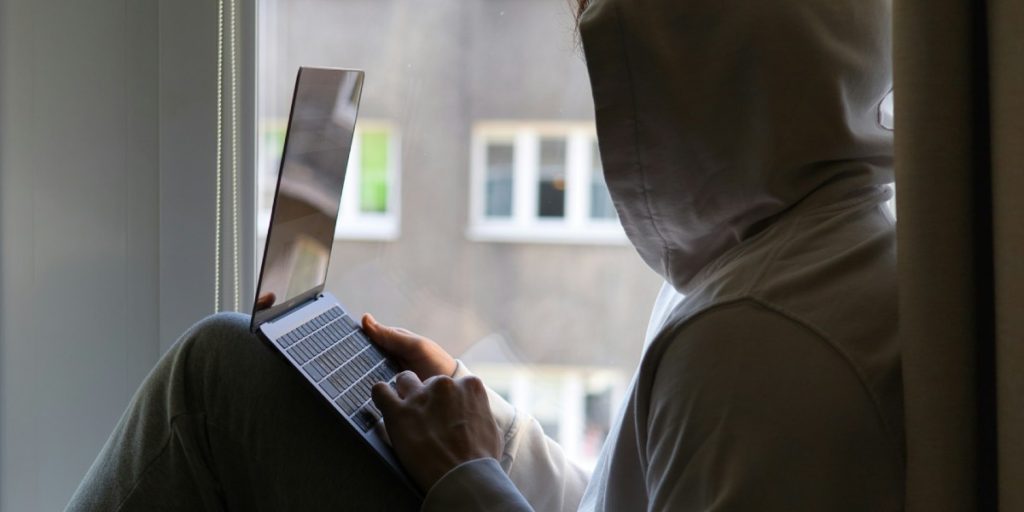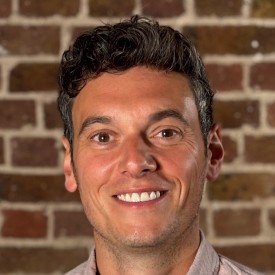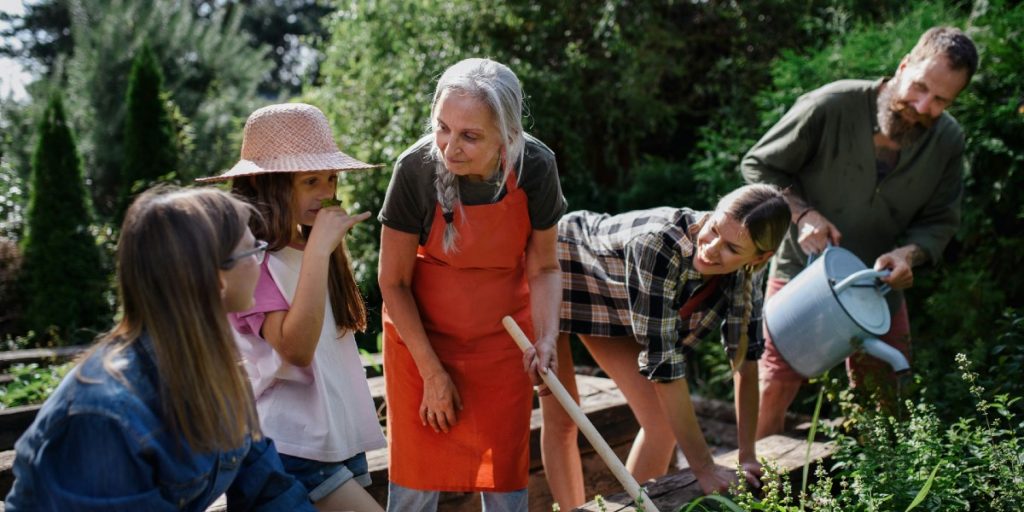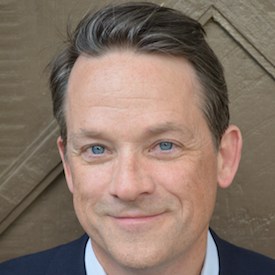Majka Burhardt is a professional climber, certified climbing guide, conservation entrepreneur, author, and filmmaker; she is also the founder and executive director of the international conservation and development organization Legado. Her work and projects have been featured in the New York Times, The Economist, Outside Magazine, The Weather Channel, NPR and more. Her articles have appeared in publications including Afar, Men’s Health, Skiing, Backpacker, Patagonia, Alpinist, Women’s Adventure, The Explorers Journal, and Climbing.
Below, Majka shares 5 key insights from her new book, More: Life on the Edge of Adventure and Motherhood. Listen to the audio version—read by Majka herself—in the Next Big Idea App.
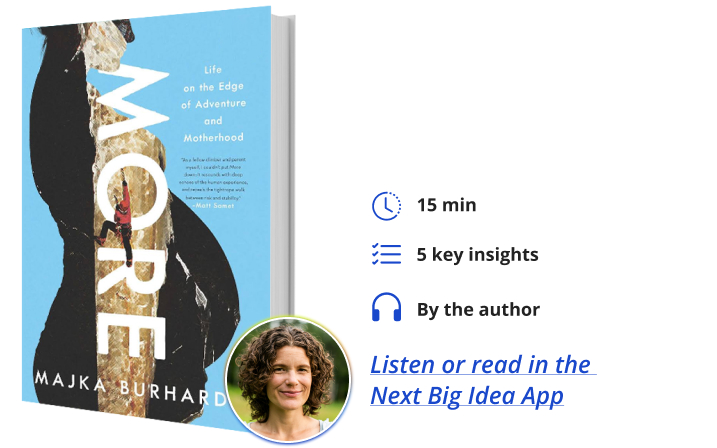
1. If parenting is scary, you’re probably parenting.
I had a plan for motherhood—and none of it happened. Surprise twins were part of my reality check, but almost everyone’s lives are radically changed when they become a parent. While intellectually I knew there was no such thing as being a perfect parent, I didn’t realize how much I was tethered to the concept that if parenting felt hard and big and scary then I must be doing it wrong.
Climbing is a series of decisions in the moment and micro-moment to keep going as safely as you can toward your objective. Your objective is usually the top of a cliff or a mountain. My favorite types of objectives are covered in ice, which a lot of people think of as extreme. But it’s nothing compared to parenting.
Parenting follows the same pattern of the series of decisions, except your objective is constantly changing—from getting your kid to finally take a nap, to not throwing the blueberries across the room, to biking down the rocky trail in shorts without falling and cheese-gratering their legs —
And those are just the short-term objectives. All the while, you’re also trying to nail the long game of raising secure, grounded humans with some skill to manage what life throws at them. Let’s also not forget that the medium here is a living, breathing, emoting child as opposed to inert rock and ice.
How in the world could this not feel scary and real? Of course, it’s also great and creates the most profound sense of love and belonging. That all makes it more scary, because those wonderful emotions are not the only ones you feel. We do scary things all the time. Let’s call this one what is. Let’s see and support ourselves, along with the parents around us, for the journey we are really on.
2. Fall upwards.
Early on in my climbing career, I was trying my hardest to hold on to micro sandstone edges with my fingers while contorting my feet for traction in a dimple of relief on a vertical wall. My body began to lose the tension of trying as my mind started giving up, and a fall was surely coming next. “Fall upwards!” came a shout from my partner below, jolting me to reach up instead of falling down.
“It became my mantra for when things felt desperate.”
Fall upwards, I started telling myself on the fifth double-feeding of the night when my twins were one-month-old. Fall upwards, I told myself when my husband tore his meniscus when they were six months old and all the night feedings we’d done as a team suddenly became mine alone. It became my mantra for when things felt desperate. With parenting, it meant I was suddenly saying it all the time.
Saying this didn’t miraculously help me pull it all off with poised perfection. What it did do was give me more self-compassion. It also eventually let me be more compassionate to my partner, seeing that he was also trying his best to find a path upward, on a climb he’d also never tried before in his life. In climbing, if you stop trying and fall, it is a failure. But if you fall because you were trying, at least you were heading in the right direction.
3. Build a real net.
When my kids were two, I spoke with devotion and ferocity about my system for managing double puking toddlers. I also spoke, with that same devotion, about learning to manage my emotions while trying to teach my kids how to do the same with theirs. I needed to talk about both of those things—a lot.
We have to find the people to whom we can talk about it all. We also have to become those people for our partners. Co-parenting young children can be the loneliest you can ever be, while also being in something “together.”
“We have to find the people to whom we can talk about it all.”
Speak up. Listen up. Love up. And then do it again. I had dirt parking lot sessions during the pandemic with two girlfriends, also climbers and moms. We tailgated through rain, blackflies, and snow to find our way together. Build a net of people you can count on for this realness and give it to others. This is not only how we become better people in our marriages, friendships, and families, but it is also how we change our society to have paid family leave, reproductive justice, a non-gendered division of labor, and true support for families. When we can share and receive what really is going on and what really matters, we are moved to support each other.
4. We all have a more.
I almost didn’t become a mom because I didn’t want to find out what I’d have to give up to have kids. It wasn’t just me, people point blank told me this—both before having kids, and while pregnant—in a “let me tell you what you don’t know” kind of way.
We have to stop telling ourselves, and each other, that we have to give things up to go forward. This is not an argument about having it all. This is a statement that we are all doing more than others see, and we all have more we want to do.
Motherhood is not a fixed state. Each mom tracks her own path through how she needs and wants to parent, work, recreate, and partner. Parodies of women caught in overly-simplistic portrayals of binary choices, between work and mothering, between having it all or having none, have served their purpose. It’s time to get more complex.
I want to know what all you’re working on in your life and what more you’re trying to do. We all have a more. Understanding that not only allowed me to pursue climbing and parenthood and growing my organization, it also shifted the very way I built that organization. Today, Legado supports the complexity of indigenous peoples and local communities in some of the most important places for our planet’s biodiversity in their pursuit of their more as well.
“We have to stop telling ourselves, and each other, that we have to give things up to go forward.”
So let’s disrupt the status quo of simplifying others and ourselves. Instead, let’s own and celebrate the complexity at the table. That is how motherhood, feminism, and even climate justice all become truly inclusive.
5. It’s our turn to fix this.
I grew up with a nylons-and-heels-wearing force of a working mother. By second grade I was known for pinching people—hard—who said mankind. In college I read about entrenched, gendered divisions of labor and celebrated the freedom my generation would surely have from that reality, should we decide to be parents. I created a career out of climbing and married a man who did the same. This sounded like a dream partnership 15 years ago when it started. That was back when sharing a tent, perched on Namibian granite or an upright nap spot on a Patagonian icy ledge no wider than your backside seemed like great proof for a lifetime of balanced coupling. And then we had twins.
Again and again, I hear moms talk about how shocked we are to be in the constant whitewash of a gendered division of labor we thought our society had left behind. It’s not that none of us have been paying attention, it’s rather that we all thought we’d be different because it’s hard to truly see the power of a system until you’re subject to its tenacity.
There is a myriad of iterations of partnerships and partners. I have a husband who goes to the mat every day for our family at home and in the world. And there is still more rebalancing to do. The work is not done, and it’s our turn to do it.
Alongside paid family leave, pay equity, and reproductive justice, we need to raise strong, confident, capable women. We need to support them and their partners with tools to rebalance their homes and families, before they are years into perpetuating a system they didn’t even know they were helping make. We need to bring these conversations out of the home and into the every day, finding the answers together to build more resilient partnerships and families. We owe that to the next generation—and ours.
To listen to the audio version read by author Majka Burhardt, download the Next Big Idea App today:












